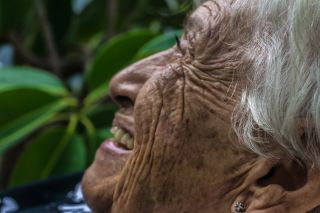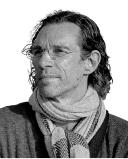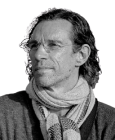Intelligence
The Transformative Power of Consciousness
Why consciousness matters for the future of our life and all life.
Posted May 23, 2024 Reviewed by Hara Estroff Marano
Key points
- Disembodied machines increasingly seem to know us better than we know ourselves.
- We have forgotten the old call for self-reflection and introspection.
- We can learn to see how our habits of categorization colonize our lives.
- We can learn to discover the transformative value of awareness beyond those habits.

We are undoubtedly witnessing the dawn of increasingly intelligent machines. So intelligent that they are now assisting us in more and more of the decisions we make. The world has become so complex that we hardly dare face it without the assistance of an intelligent algorithm.
The intelligence of such machines is increasing extremely rapidly. Many things humans do will soon be done better and faster with computational intelligence: Authoring essays, creating music, images, videos, and animations.
It seems that our most uniquely human quality, our capacity for consciousness and the associated capacity for free will, can very rapidly be manipulated, colonized, and taken over by intelligent machines. Disembodied machines increasingly seem to know us better than we know ourselves.
The Disembodied Simulation of Embodied Humans
But can this really be the case? How could a machine built from metals know human life built from cells that took some four billion years to become what they are? What could a machine really feel beyond what engineers programmed into it? Can a device ever feel the birth of a child and feel the pain and love for it? Is feeling the care for a living human being programmable? Or is it only palpable from the embodied subjectivity of a real mother?
Is humanity letting itself be taken over before it even bothers to know itself? Above the entrance to the temple of Apollo at Delphi was the famous statement, "Know thyself." It was a call to self-reflection and introspection. It was meant to encourage humans to know themself before making decisions or choices. Have we forgotten this old wisdom?
So, What Is Consciousness?
We are already handing over all decisions to artificial intelligence before we know the value of our own living intelligence, to artificial intelligences designed by digital architects who are not at all disinterested and free from the pursuit of power and money. Or were their designs created out of love for humanity? A complex discussion is hanging over our heads.
To what extent do we allow our lives to be supported or determined by non-living algorithms? Consciousness is not a set of rules. Then what is consciousness? Again, there is no single point of view, and the differences between scientific perspectives are great. So is it a matter of choosing the theory that best fits our beliefs or supports our career?
Do we choose one of the many variants of a higher-order theory, like Joseph LeDoux's? Do we choose the embodied theories of Anil Seth or Antonio Damasio? Do we choose the neurophenomenological approach of Fransisco Varela or Evan Thompson, the causal power of the integrated information theory of Giulio Tononi and Kristof Koch or the many other schools of research? Again, there is no clear answer, the research is still open.
What do we have to do? Do we ask a Generative Pre-trained Transformer what is human consciousness? Do we ask chatGPT how many living animals can feel? Or are we trying to discover for ourselves the living consciousness around us and the transformative space of our own consciousness?
The Direct Experience of Our Own Space of Consciousness
Right now, the James Webb Telescope is circling deeper and deeper into space, showing us incredibly beautiful images of our distant origins. Likewise, faster and faster particle accelerators are plunging deep into the nature of the energetic world in search of the constructive forces within ourselves. Consciousness itself, the source of all these possibilities, is only in the early stages of discovery by our psychological culture.
We have a unique opportunity: we all have our own variation on the theme of consciousness. And one of the variations of the more than eight billion expressions of human consciousness that currently exist, we can learn to explore directly. We have one direct entry. We can learn to discover the cognitive habits that exist within us. We can learn to see how our habits of categorization colonize our lives. And we can learn to discover the transformative space of awareness when we go beyond those habits.
And then, knowing ourselves a little better, we can choose to what extent we allow our lives to be guided by disembodied but very intelligent designs of very smart, living people guided by the business models of multinationals controlled by their investors, lobby groups, and shareholders. How can they help us build a life and a civilization that is worth living?
Understanding our ingrained habits as cognitive schemas, mental models, and categories that shape our perceptions could help us at this time. We could see the vast swamps of cognitive and emotional polarization that cause so much unnecessary suffering in our world and absorb all our resources for meaningful work, protecting life instead of destroying it in the name of old dogmas and ideologies that only benefit small groups of powerful people.
Discovering the transformative power of our consciousness could usher in a revolutionary paradigm shift. Discovering what living intelligence we humans really have before we give the key to a form of non-living intelligence: What is the phenomenology of the intrinsic space through which we touch and are touched by everything that exists? Isn’t that the transformative power of human consciousness? Isn’t that our free will to become who we really are?




